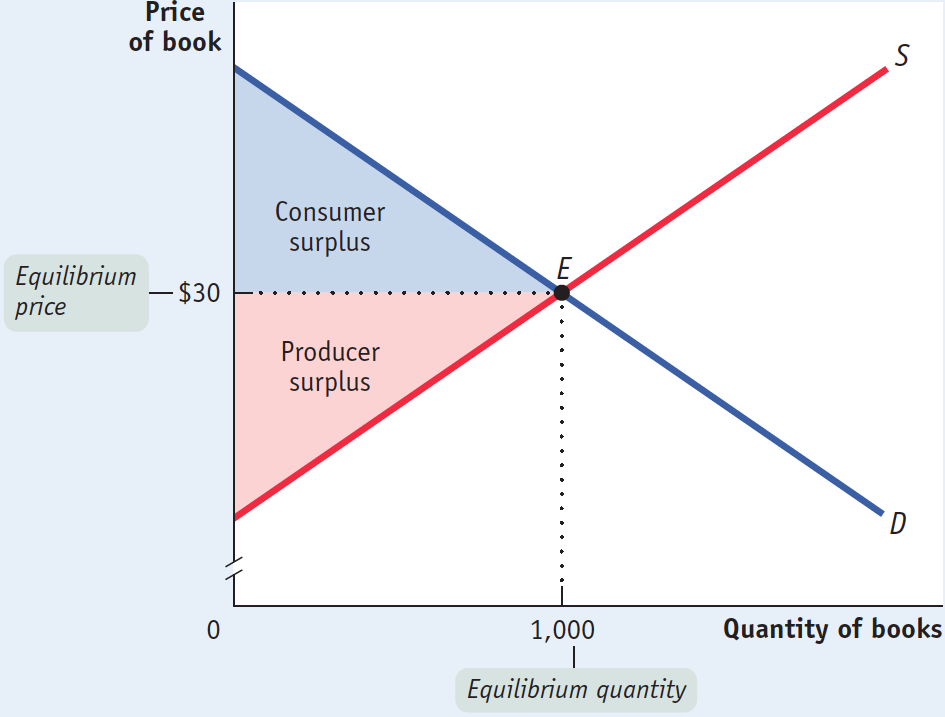The Gains from Trade
Let’s return to the market in used textbooks but now consider a much bigger market—say, one at a large state university. There are many potential buyers and sellers, so the market is competitive. Let’s line up incoming students who are potential buyers of a book in order of their willingness to pay, so that the entering student with the highest willingness to pay is potential buyer number 1, the student with the next highest willingness to pay is number 2, and so on. Then we can use their willingness to pay to derive a demand curve like the one in Figure 4-11.

Total Surplus In the market for used textbooks, the equilibrium price is $30 and the equilibrium quantity is 1,000 books. Consumer surplus is given by the blue area, the area below the demand curve but above the price. Producer surplus is given by the red area, the area above the supply curve but below the price. The sum of the blue and the red areas is total surplus, the total benefit to society from the production and consumption of the good.
Similarly, we can line up outgoing students, who are potential sellers of the book, in order of their cost—starting with the student with the lowest cost, then the student with the next lowest cost, and so on—to derive a supply curve like the one shown in the same figure.
The total surplus generated in a market is the total net gain to consumers and producers from trading in the market. It is the sum of the producer and the consumer surplus.
As we have drawn the curves, the market reaches equilibrium at a price of $30 per book, and 1,000 books are bought and sold at that price. The two shaded triangles show the consumer surplus (blue) and the producer surplus (red) generated by this market. The sum of consumer and producer surplus is known as the total surplus generated in a market.
The striking thing about this picture is that both consumers and producers gain—that is, both consumers and producers are better off because there is a market in this good. But this should come as no surprise—it illustrates another core principle of economics: There are gains from trade. These gains from trade are the reason everyone is better off participating in a market economy than they would be if each individual tried to be self-sufficient.
But are we as well off as we could be? This brings us to the question of the efficiency of markets.
